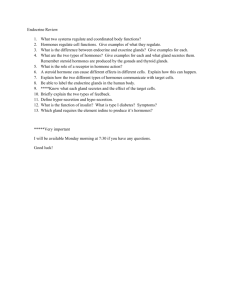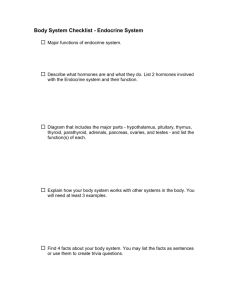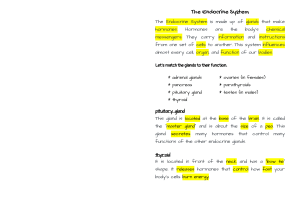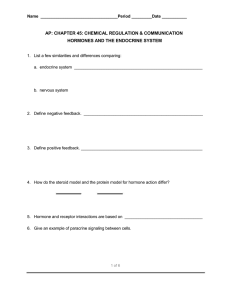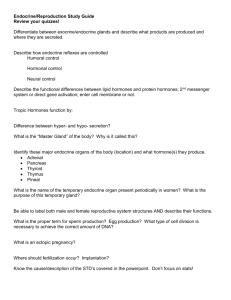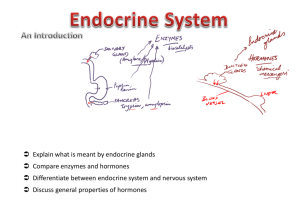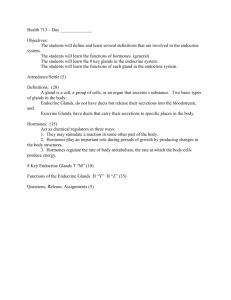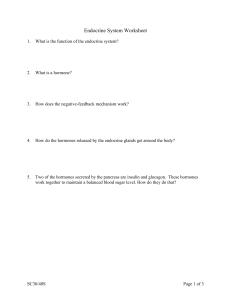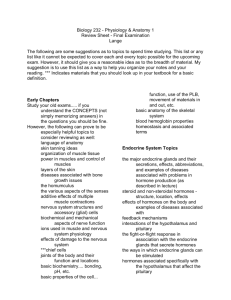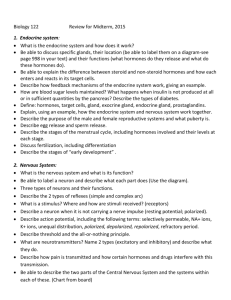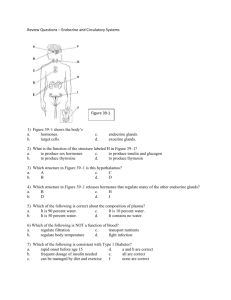The Endocrine System Study Guide
advertisement
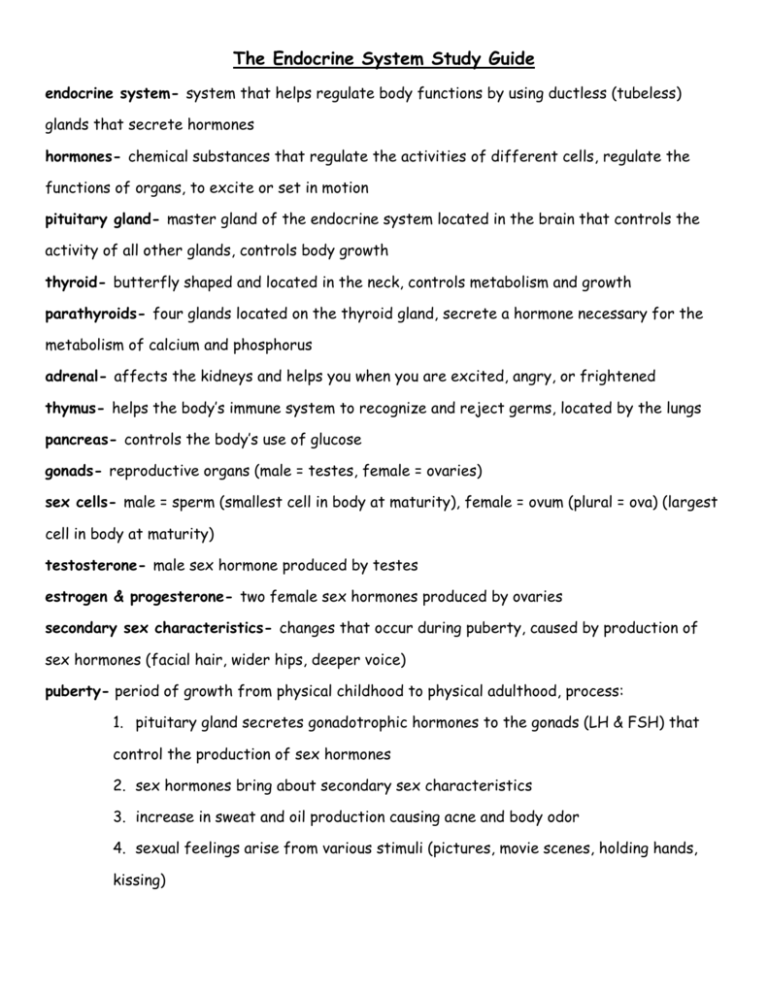
The Endocrine System Study Guide endocrine system- system that helps regulate body functions by using ductless (tubeless) glands that secrete hormones hormones- chemical substances that regulate the activities of different cells, regulate the functions of organs, to excite or set in motion pituitary gland- master gland of the endocrine system located in the brain that controls the activity of all other glands, controls body growth thyroid- butterfly shaped and located in the neck, controls metabolism and growth parathyroids- four glands located on the thyroid gland, secrete a hormone necessary for the metabolism of calcium and phosphorus adrenal- affects the kidneys and helps you when you are excited, angry, or frightened thymus- helps the body’s immune system to recognize and reject germs, located by the lungs pancreas- controls the body’s use of glucose gonads- reproductive organs (male = testes, female = ovaries) sex cells- male = sperm (smallest cell in body at maturity), female = ovum (plural = ova) (largest cell in body at maturity) testosterone- male sex hormone produced by testes estrogen & progesterone- two female sex hormones produced by ovaries secondary sex characteristics- changes that occur during puberty, caused by production of sex hormones (facial hair, wider hips, deeper voice) puberty- period of growth from physical childhood to physical adulthood, process: 1. pituitary gland secretes gonadotrophic hormones to the gonads (LH & FSH) that control the production of sex hormones 2. sex hormones bring about secondary sex characteristics 3. increase in sweat and oil production causing acne and body odor 4. sexual feelings arise from various stimuli (pictures, movie scenes, holding hands, kissing) Robert Havinghurst’s nine suggested tasks of adolescence1. forming more mature relationships with peers of both genders 2. achieving a masculine or feminine social role 3. accepting one’s physique and using one’s body effectively 4. achieving emotional independence from parents and other adults 5. preparing for family and marriage life 6. preparing for a career 7. acquiring a set of personal standards as a guide to behavior 8. developing social intelligence, which includes become aware of human needs and becoming motivated to helping others achieve their goals 9. developing conceptual and problem-solving skills

